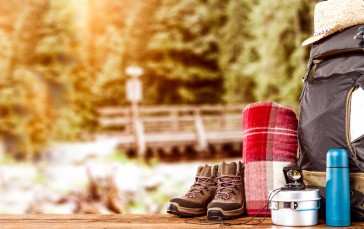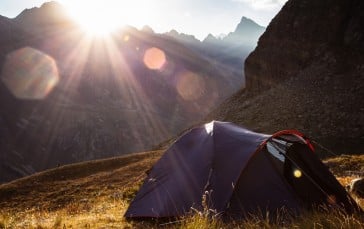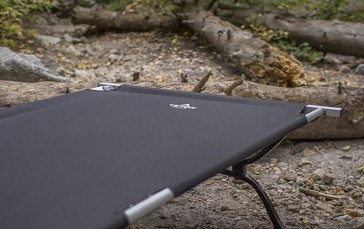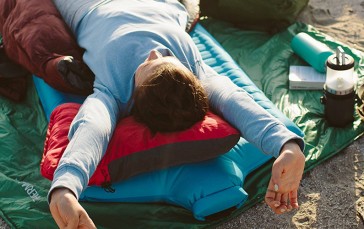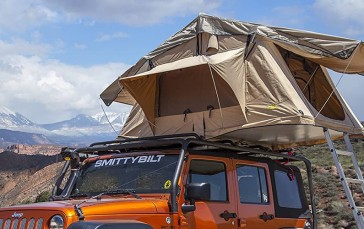Camping On A Budget
Camping used to be an incredibly cheap holiday option, but as outdoor pursuits have risen in popularity, so have the prices. The cost of camping grounds, tents and activities can soon pile up, and before you know it, you’ve got the same cost that you’d spend on a normal holiday. But camping on a budget is possible with just a few tweaks to your usual plan. Depending on how frugal you want your camping trip to be, you can save serious money just by being smart about how you plan your trip and thinking ahead.
Avoid Peak Camping Seasons
Just like with hotels, campsites also have peak seasons when it is more expensive to camp. If you can plan your trip accordingly, you may find that you can shave off quite a bit of money from your bill simply by camping in a different month. If you already had a time in mind, you could consider switching the dates to the edge of the high season (if you can tolerate the varying weather).
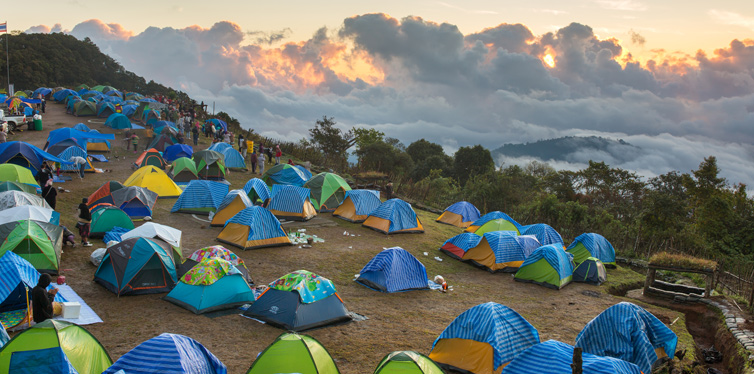
Pick a Campsite Close to Home
Contrary to popular belief, you don’t need to travel miles to get away from it all – after all, once you’re camping, the experience is just as enjoyable wherever you are. You can save a lot of money on petrol by choosing a campsite within an hour of your house and still enjoy a great camping trip.
Choose campsites with minimal facilities
Although it’s tempting to choose a campsite with great facilities like a pool or tennis courts, these additional features bump up the cost. By opting for a basic campsite with just the essential facilities, and bringing your own entertainment, you’ll keep the cost down without it really impacting your stay at all. It’s also worth noting that some campsites charge for bringing a dog or an extra car, so make a note of any additional costs you might have to pay with certain sites.
Bring items from home
A lot of what you’ll need while camping is already sitting in your home, free to use. From plates, utensils and cutlery to towels, washing up liquid and soap. If you don’t want to bring items that might get wet or damaged, such as pillows, simply get creative – bring a pillowcase and fill it with your clothes for the trip or with your rolled-up towels inside. It saves space, money and is just as effective.
Borrow, rent or buy second-hand equipment
If your camping trip is a unique occurrence, you could see what you could either purchase second-hand, rent or borrow from friends or family. You’ll be surprised what you can find in really great condition on sites such as eBay or Gumtree for far less than you’d pay new. Pots, pans and even hiking boots are usually being sold for a fraction of the price – they just take a bit more time to search for but it’s often well worth the effort.
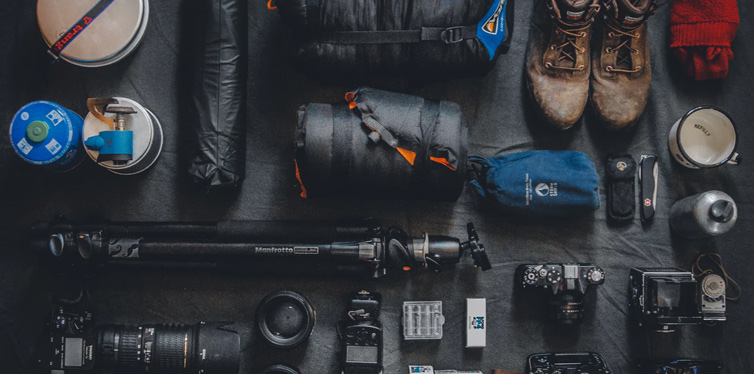
Research where to make savings…
If you think you’ll be camping quite regularly and want to invest in the equipment for long-term use, be wise about where you spend your money to get the best value. Things like sleeping pads are well worth spending the money on for a more comfortable night’s sleep, but they’re fairly inexpensive. But for warmth, don’t spend a lot of money on unnecessary items when you can simply bring blankets and pillows from home. If you’re planning on including a hike as part of your trip, don’t feel the need to invest in pricey hiking shoes– you’ll be just fine hiking in your regular trainers which won’t cost you a penny.
…and where not to
Sometimes spending a bit more money is worth it. One of the places it’s advisable not to skimp is when it comes to the tent. There’s nothing worse than camping in a leaky, wind-battered tent that falls down every half an hour. In this regard, you’re much better investing a decent amount of money on a tent that will hold up to weather conditions and will provide decent protection. The same can be said for sleeping bags – of all the things you’re likely to have on your wish list for a camping trip, a sleeping bag should be one of the areas where you invest. If you’re camping with a group of friends, consider sharing the equipment rather than duplicating things you’ll likely share the use of anyway, such as camping stoves and cooking equipment. You can also all chip in for a larger tent and share the use of it too. Another way to save money on your equipment is to buy it out of season when it will likely be discounted.
Create a camping box
If you’re buying camping equipment in stages, you might want to consider keeping a camping box to store useful items that you might otherwise have thrown away, such as complimentary sugar bags, tea bags, coffee beans and individual wet wipes, as well as travel-sized washes, deodorant or free toiletry packs from hotels for your next camping trip.
Stick to inexpensive foods
Campsite shops are useful but incredibly expensive, and buying just basics could set you back a fair bit of money. Instead, go shopping locally before you set off and buy inexpensive foods that will keep and be easy to heat up when you’re camping. This will keep the cost down and ensure you have plenty of food to last you during your trip.
In a similar vein to what you’re eating, there will be essentials that you’re likely to need during your trip that often get forgotten until they’re needed – and by that point, you’re stuck having to purchase them at an inflated price. Items like torches, spare batteries, and cheap plastic cups and plates will not only be useful but much cheaper if purchased from a supermarket back at home than on the road.


